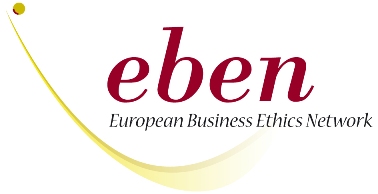Sustainability of Future Working Life
For several decades ago the mission of the Brundtland Commission was announced with the aim to unite societies to pursue sustainable development. Since then the topic of sustainability has been discussed and debated eagerly in different arenas. The sustainability ideas in the Brundtland Report emphasised the combination of environmental, economic, social and institutional aspects of development. This initiative has been influential also in the field of business ethics research in recent years.
However, most discussions around sustainability have focused on the environmental aspect. When planning the theme for the EBEN Annual Conference 2017, we wanted to extend the discussion to include also other aspects of sustainability and decided to pay special attention to the context of future working life. As working life is facing significant social, technological, cultural, economic and environmental changes, we wanted to focus on exploring the meaning of these changes in terms of sustainable working life. We called for studies that examine the challenges and possibilities that follow from various societal changes in private, public and third sector organisations and in their organising, management and leadership.
In the context of future working life, many salient themes and topics can be recognised. First, the growing diversity of the workforce raises the questions of inclusion and equality. Private and public organisations need to increasingly address the questions of diversity, for example, in terms of gender related issues, power hierarchies, immigration, ethnic backgrounds and cultural values. Moreover, work-life integration and the increasing demand for employees to be of use 24/7 increases several important issues in relation to employee well being, meaningful work, parenthood, career development and gender.
The demands for improved performance and increased effectiveness have led organisational researchers to pay attention to the humanity of the future working life. It is increasingly argued, that value creation is a relational and interactive process that calls for reconsidering the roles, actions, and interactions among various actors. Only such organisations that respect the needs, expectations and interests of various stakeholders and build on mutual understanding and collaborative learning can develop continuous and sustainable success in the future. Therefore, we need more research on the development of human and social capital, on the organisational culture as well as on innovation, learning and renewal at both organisational and societal levels.
New business models and ways of organising challenge the sustainability of the future working life and put pressure to our societies and organisations in many ways. The development of social media and digitalisation opens doors for global corporations to renew their business models as well as for small startup companies and entrepreneurs to create innovations. Along this development, we need to take seriously the issues of privacy, property rights, piracy, control and freedom. These challenges are notable as well in business networks and collaboration as in consumer marketing and in other stakeholder relations.
Sustainable future working life is however not just about tackling challenges and solving problems. It is also about creating new opportunities and building viable visions. I believe that if we are ableto move our minds from egocentric competition to empathetic cooperation, from speaking and influencing to listening and convincing, and from confronting and defensive attitude to constructive and open stance we could create a sustainable future working life for us and for future generations.
The EBEN Annual Conference 2017 will take place June 14-16, at University of Jyväskylä School of Business and Economics JSBE, Finland. With esteemed keynote speakers (Professor Hugh Willmott, Member of the European Parliament Sirpa Pietikäinen and Dr. Pirkko Melville) and over one hundred research presentations the conference will be a noteworthy event around the theme of “Sustainability of Future Working Life”. The conference is preceded by a doctoral workshop on June 13, where PhD candidates have a possibility to discuss their research withleading scholars in the field.
We warmly welcome all to visit the beautiful city of Jyväskylä at the time of bright midsummer nights and to participate in the interesting and important event of EBEN AC 2017!
Dr. Johanna Kujala is currently working as a professor of Management and Organization at University of Tampere. She is also a Docent of Business Administration (Stakeholder Management and Business Ethics) and a director of the RESPMAN (Responsible Management) Research Group at University of Tampere. Previously she has worked as a senior researcher and lecturer at the Tampere University of Technology, and University of Jyväskylä.

